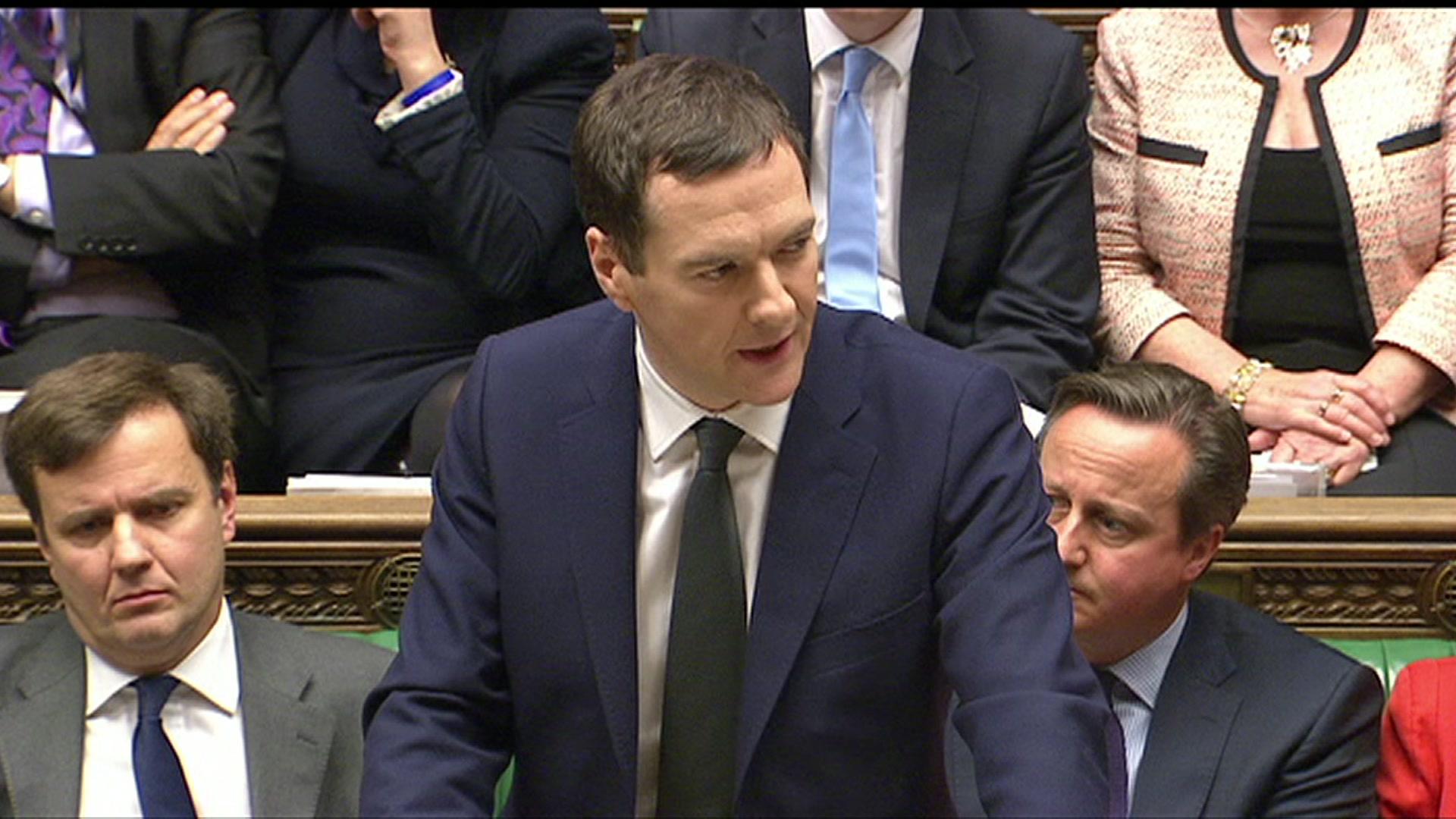Spending Review: Eye on the prize
- Published
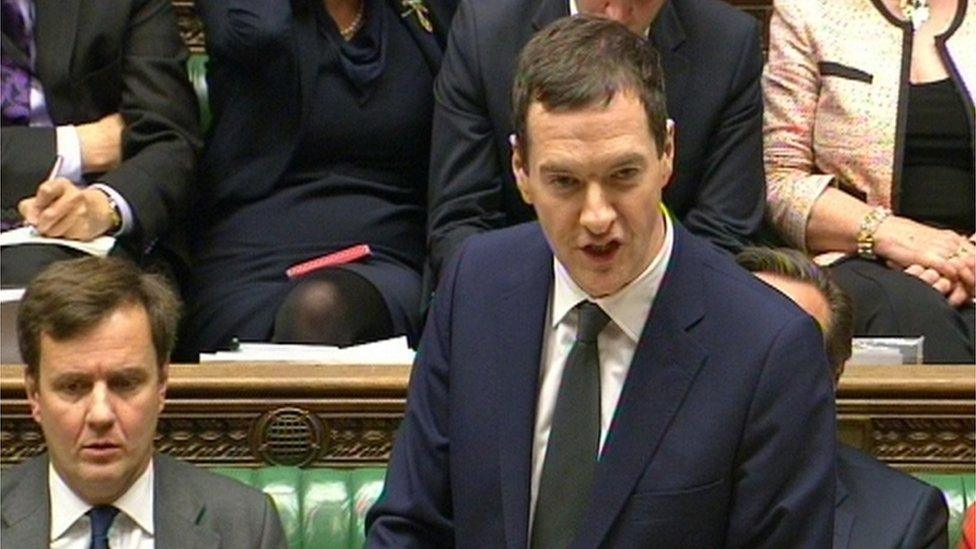
George Osborne announced that his plan to cut tax credits would not go ahead
As regular readers of these musings may recall, I regard Lewis Carroll as the greatest of all political sages. Particularly the assertion in one of his works that "everybody has won and all must have prizes."
It was never so true as at Holyrood today when political parties responded to the Chancellor's decision to steer clear of cutting tax credits.
They didn't - quite - start a chant of "prizes, prizes." But certainly everyone was eager to claim the credit for persuading Gideon to change his mind.
It was Labour, apparently, deploying the full might of the Upper Chamber along with other political tools. No, no, it was the Chancellor's former chums in the Liberal Democrats. (Ok, delete chums, insert colleagues.)
How many seats might be lost?
Not at all, not at all. It was pressure from inside Tory ranks. One Conservative muttered to me: "Four words. Ruth talks, Chancellor listens."
Now, in that regard, I am prepared to give considerable credence to the view that the Chancellor was alert to considerable disquiet in his own ranks. This was strictly an arithmetical calculation: how many votes multiplied by how many marginal seats might be lost.
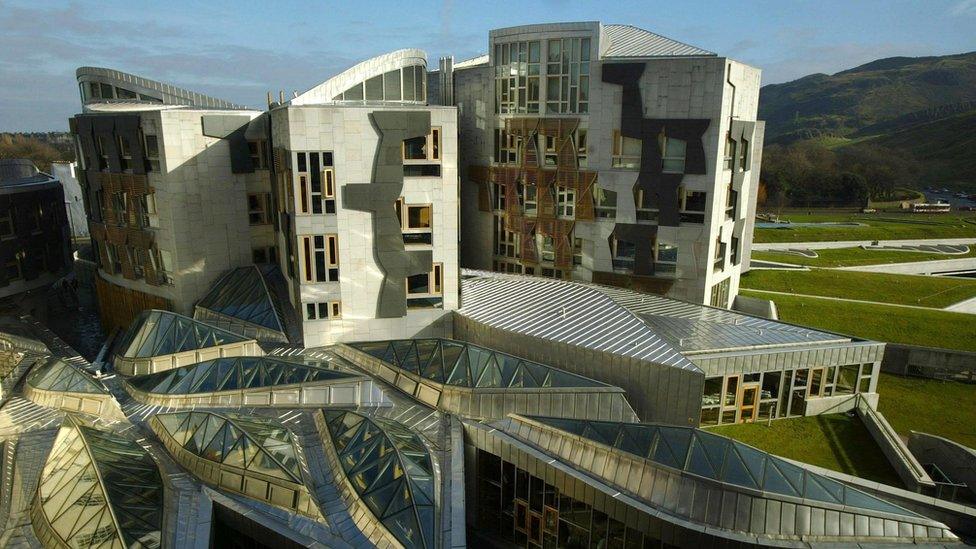
The Scottish Parliament will hear about the Scottish government's spending plans on 16 December
No doubt Ruth Davidson's persuasive voice was added to the Tory chorus. But perhaps there were chums a little closer to home. Say, the Chancellor's next door neighbour in Downing Street.
Which only leaves us with the SNP. Their response? They were punching the air in delight. Firstly, because they genuinely regarded the tax credit cuts as iniquitous. But, secondly, because it gets them off a rather spiky hook.
Scottish Labour, you will recall, had offered to fill any gap for Scotland left by the Chancellor's tax credit cuts. In fact, they had gone further, offering to generate an explicit budget line to replicate that spending and to generate it in future.
Entirely understandably from their perspective, they had then challenged the SNP and Scottish government ministers to match that pledge.
The SNP, frankly, were worried. Yes, they could decry the arithmetic. Yes, they could say that Labour's plan was ill-formed and imprecise. But they fretted over the politics. Was it a vote winner in Scotland?
Curbs in housing support, perhaps?
John Swinney, the Finance Secretary, counselled caution. Wait, he said, and see what actually emerges from the Chancellor's rethink. Wait, he said, and see what the gap actually is.
Now the issue has been removed entirely. Or rather the precise issue of tax credit cuts is off - removing, for now, Scottish Labour's attack upon the Tories (which, of course, was targeted in reality at the SNP.)
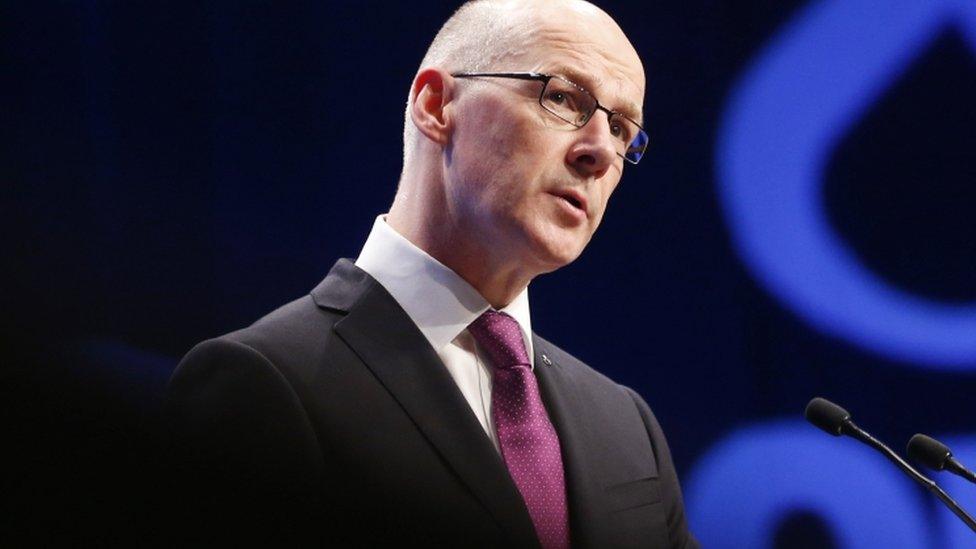
John Swinney wants a fair fiscal framework for Scotland
For now? Remember that benefit cuts there will still be. Twelve billion pounds of them. But not through tax credits. Rather they will emerge in the transition to Universal Credit. Perhaps particularly through curbs in housing support.
It will still be feasible for the Conservatives' opponents to mount an attack upon that strategy and those revised numbers. However, it may be difficult - absenting the tax credit cuts - for Scottish Labour to translate that into an attack upon the SNP.
There will be a Westminster Labour narrative which will argue that the welfare cuts are unfair or unwarranted. The Chancellor will rebut that by arguing that the best approach for the British economy is ultimately to focus upon investment, not benefits.
But does that narrative translate into Holyrood speak, does it resonate at the Scottish elections next May? Perhaps it might still work against the Tories - although Conservatives at Holyrood feel the removal of tax credit cuts helps them at the polls.
Can it be fashioned, though, as a Labour sword for beating the SNP? Much more difficult to envisage. The immediate issue of tax credits - in which Labour invested so much political credit - has now gone. Might Scottish Labour now challenge the SNP to deflect other benefit constraints? Perhaps.
Spending Review
What's up and what's down in Scotland?
14%
UP - capital spend
5.7%
DOWN - day-to-day revenue spend
And how about spending more generally? Umpteen consequences for Scotland, of course: some directly through reserved spending, some indirectly through the devolved budget.
Capital spending will rise substantially in line with the Chancellor's overall approach: up 14 per cent, say the Scotland Office. Day to day revenue spending will be reduced by around 5.7% in real terms over the next four years.
That is less of a cut than for some Whitehall departments - because Scotland benefits, in relative terms, from the fact that devolved budget lines, such as health, are being protected in England, leading to comparable gains in Scotland.
But it is still a significant cut, building upon existing constraint. The Chancellor argues that Scotland will gain from his "twin security" approach: defence and the economy. Mr Swinney says it will mean further tough decisions in Scotland. He will spell out the details on December 16.
There is, though, a wider question. What happens to that Scottish budget once the new tax plans, in the Scotland Bill, external, kick in?
That depends upon the fiscal framework to accompany the powers which is presently being negotiated between the Treasury and the Scottish Government. That framework is due to establish the formula by which funds will be withdrawn annually from the Block Grant to match the money raised in Scotland from income tax.
John Swinney stresses - and the UK Government confirms - that the overall budgetary pattern for Scotland will continue to be determined via the Barnett Formula. There is then a calculation of how much Scotland should raise directly - and how much should be funded via Block Grant.
'Needs to be fair to Scotland'
In his statement, the Chancellor confronted the issue of the framework, stressing that he was ready to reach agreement and that the ball was in the court of the Scottish government, to borrow his phrase.
This apparently emollient approach came in the course of a section dealing with Scotland in which Mr Osborne pointedly drew attention to the decline in the oil price - and, consequently, in oil revenues.
The impact in an independent Scotland, he said, would have been "catastrophic", a chorus readily adopted by others, including Scottish Labour.
Perhaps wisely, Nationalists have declined to rise to the oily bait dangled by the Chancellor. However, they have responded to the more immediate challenge posed with regard to the framework.
Mr Swinney continues to emphasise that he will not endorse the framework unless it is "fair" to Scotland. Now he believes he has an arithmetical tool with which to calculate "fairness".
Barnett has decreed what the Scottish budget should be for the next four years. Mr Swinney believes that total should continue to be attained - from, eventually, a blend of Scottish taxation and Whitehall Block Grant.
Further, he will argue that total should only be reduced if a Scottish government chooses to cut taxation and take a spending hit. It should not be reduced, he will assert, purely as a consequence of the fiscal framework rules.
The rule is: jam tomorrow and jam yesterday, but never jam today.
- Published25 November 2015
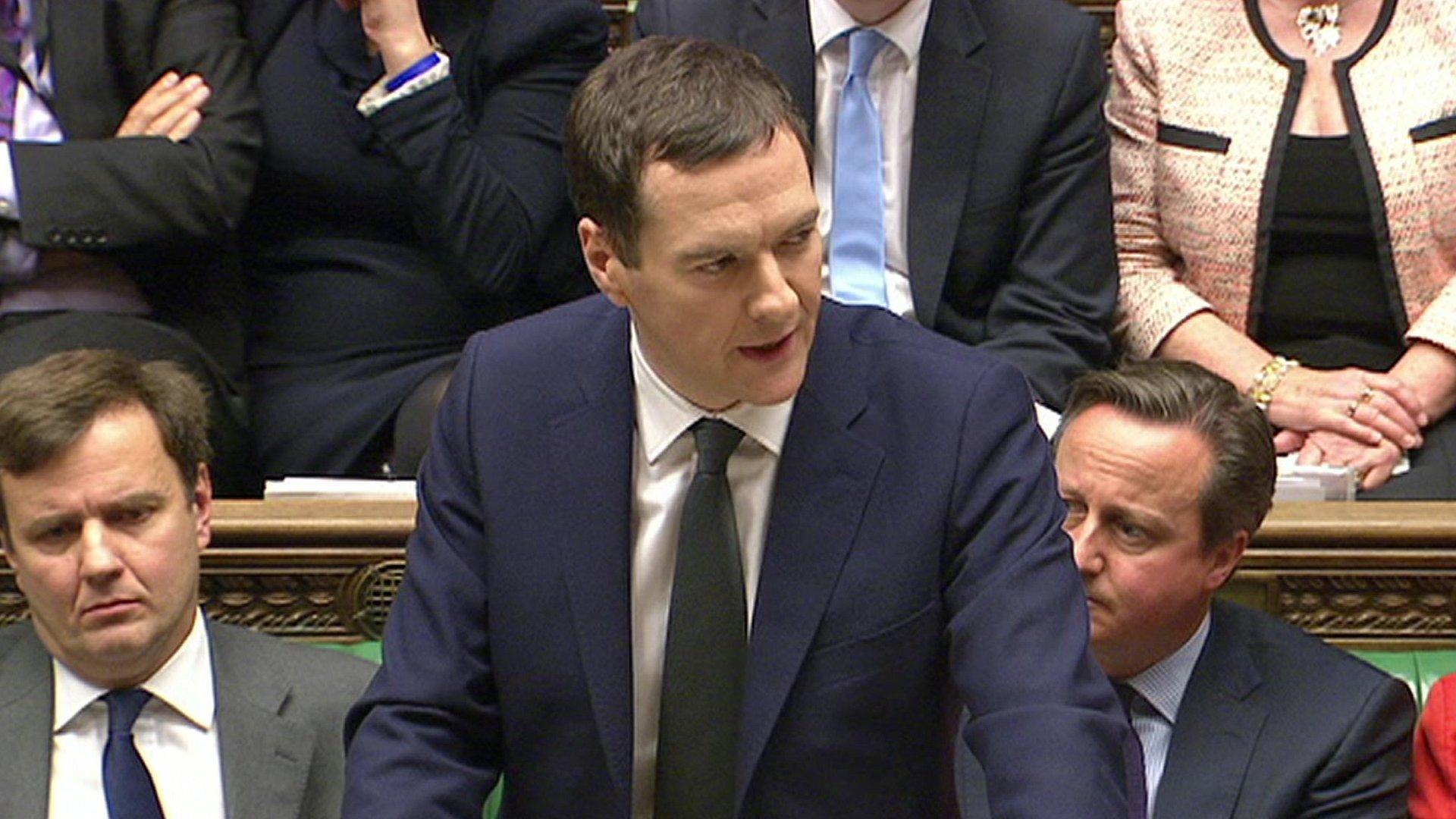
- Published25 November 2015
